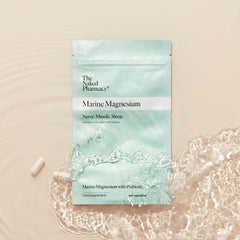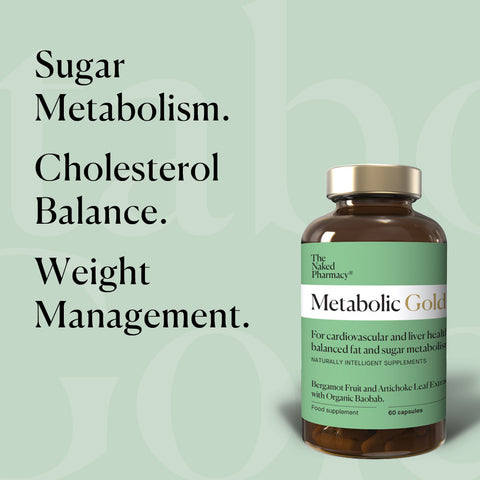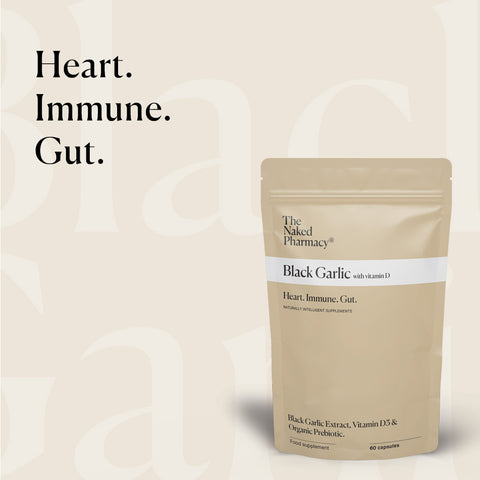Journal
Clear the mist - How to combat brain fog
Many of us have experienced moments where our mind feels clouded, making concentration and memory recall more challenging than usual. This is commonly referred to as brain fog and can be very frustrating to deal with. While it’s not a medical diagnosis in itself, brain fog is a symptom that can significantly impact your quality of life.
What is brain fog?
Severe brain fog can be debilitating, particularly if you need to function day-to-day in a high-performance or pressured environment at home or work. It can affect your levels of confidence, self-esteem and performance.
Brain fog causes
Many factors can contribute to brain fog such:
Lifestyle Factors: Poor sleep quality, lack of exercise, and a nutrient deficient diet.
Medical Conditions: Chronic fatigue syndrome, fibromyalgia, anaemia, depression, thyroid disorders. diabetes and post viral syndrome are among the conditions associated with brain fog.
Medications: Certain medications can affect cognitive function as a side effect.
Stress and Mental Health: High-stress levels and mental health issues like anxiety and depression are closely linked to brain fog.
Other factors that can affect brain fog are age, hormonal changes, nutritional deficiencies, and even the aftermath of conditions such as COVID.
Brain fog symptoms
Brain fog manifests as cognitive impairments including:
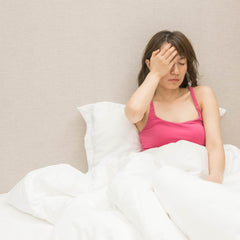
- Mood swings
- Lack of focus
- Irritability
- Confusion
- Trouble sleeping,
- Low energy or fatigue
- Forgetfulness
- Trouble concentrating
- Low motivation
- Difficulty making decisions
Menopause brain fog
Brain fog during perimenopause and menopause is a real and sometimes challenging symptom faced by many going through the hormonal transition.
Hormonal fluctuations - particularly a decrease in oestrogen and testosterone - are believed to play a critical role in this. When the levels of these hormones begin to fall during perimenopause and menopause, you can experience a range of cognitive symptoms including memory loss, difficulty staying focused, losing your train of thought, and getting confused easily.
Oestrogen is involved in regulating neurotransmitters that affect cognition, including serotonin and dopamine. As these hormone levels fluctuate, so does the clarity of thought, making brain fog a frequent complaint amongst menopausal women.
Testosterone strengthens nerves in the brain and contributes to mental sharpness and clarity, as well as overall energy levels. It also strengthens arteries that supply blood flow to the brain, which is crucial to protect against loss of memory.
Brain fog is very common. In research conducted by the British Menopause Society, almost 40% of the women interviewed reported issues with memory and concentration as they go through the menopause.*
*Menopause - Understanding the impact on women and their partners.
The COVID connection
Post-COVID brain fog has emerged as a lingering symptom for many individuals recovering from the virus due to consequences such as inflammation and the overall stress of dealing with the illness.
In one study, 7.2% of people who reported having long COVID experienced brain fog, and this symptom was more common in those who had a more severe case of COVID-19.
Stress

Chronic stress can increase blood pressure, weaken the immune system, and trigger depression. According to a study undertaken in 2017, stress can also cause mental fatigue.
Chronic stress leads to sustained high levels of cortisol, the body's stress hormone. High cortisol levels can impair cognitive function such as memory and concentration, contributing to brain fog.
Stress can also disrupt the balance of neurotransmitters, such as serotonin and dopamine, which play crucial roles in mood regulation, focus, and cognitive processing. Imbalances in these chemicals can lead to difficulties in concentrating and memory lapses.
Chronic stress is linked to increased inflammation in the body, which can negatively affect brain function and lead to symptoms of brain fog.
Medications
Brain fog is a known side effect of certain medications, such as certain painkillers, antidepressants and sleep medications.
Brain fog can also occur after cancer treatments. This is often referred to as ‘chemo brain’.
Sleep
The NHS recommends that adults should aim for 7 – 9 hours of sleep each night. However, Nuffield Health surveyed 8,000 adults in the UK and found that most adults are getting an average of 5.9 hours of sleep every night in 2023.
Poor sleep quality and sleep deprivation can significantly contribute to cognitive impairments, including reduced attention span, memory issues, and decreased mental clarity.

How to clear the fog
Brain fog can be frustrating, but relief is possible. You should not ignore your symptoms because, if left untreated, brain fog can impact your ability to function and undertake tasks.
Addressing brain fog involves treating underlying causes or making lifestyle changes to improve cognitive function, these include:
Sleep: Ensuring adequate, high-quality sleep can significantly reduce symptoms of brain fog. Aim for 7-9 hours per night and maintain a consistent sleep schedule.
Nutrition: A diet rich in fruits, vegetables, whole grains, and omega-3 fatty acids (found in fish) can support brain health. Avoiding excessive alcohol, sugar, and processed foods is also advisable.
Exercise: Regular exercise increases blood flow to the brain and has been linked to improved cognitive function. Activities like walking, swimming, and yoga can be particularly beneficial.
Stress Management: Techniques such as mindfulness, meditation, and yoga can reduce stress and improve mental clarity.
Hydration: Adequate hydration is crucial for maintaining cognitive function. Aim for 8 glasses of water daily.
Mental Stimulation: Engage in activities that challenge your brain, such as puzzles, learning a new skill, or reading.
Magnesium
Magnesium is an essential nutrient that plays a pivotal role in over 300 physiological processes in the body, including those involved in energy production, sleep quality, and the regulation of neurotransmitters. It’s, therefore, no wonder that magnesium has been identified for its potential to alleviate brain fog.
Magnesium aids in improving brain function by supporting the nervous system, enhancing sleep quality, reducing inflammation, and reducing stress levels—all factors that can mitigate the symptoms of brain fog. For those individuals navigating menopause, magnesium's role in balancing hormones further highlights its significance.
Marine magnesium supplements
Marine Magnesium can help to restore clarity for anyone experiencing brain fog. Our bodies require this micromineral to function healthily however our bodies do not synthesise or store magnesium. It is therefore essential that we get an adequate daily intake from our diet or high-quality food supplements.

“There are so many magnesium supplements on the market, which one should I choose?”
We understand how overwhelming it can be when deciding on which Magnesium supplement you should be taking. The key to selecting the most suitable supplement lies in understanding the difference in the quality and purity of the different supplements available.
Our Marine Magnesium is sourced from purified seawater and is in the form of magnesium hydroxide. Due to its natural and pure source, it is quickly absorbed by the body making it more effective and very gentle on the stomach.
Marine Magnesium contains only 3 ingredients:
- Magnesium (from seawater)
- Organic baobab (natural prebiotic)
- A natural, tapioca capsule shell.
Most other magnesium supplements such as magnesium glycinate, citrate, picolinate and taurate are synthetic and manufactured using chemicals and often contain numerous additives, fillers and bulking agents.
Like your food, it is best to avoid supplements that are overprocessed and contain unnecessary additives that can often affect the supplement's effectiveness and even be harmful to health. Remember to always read ingredient labels to help you choose your supplements wisely - choose NAKED.
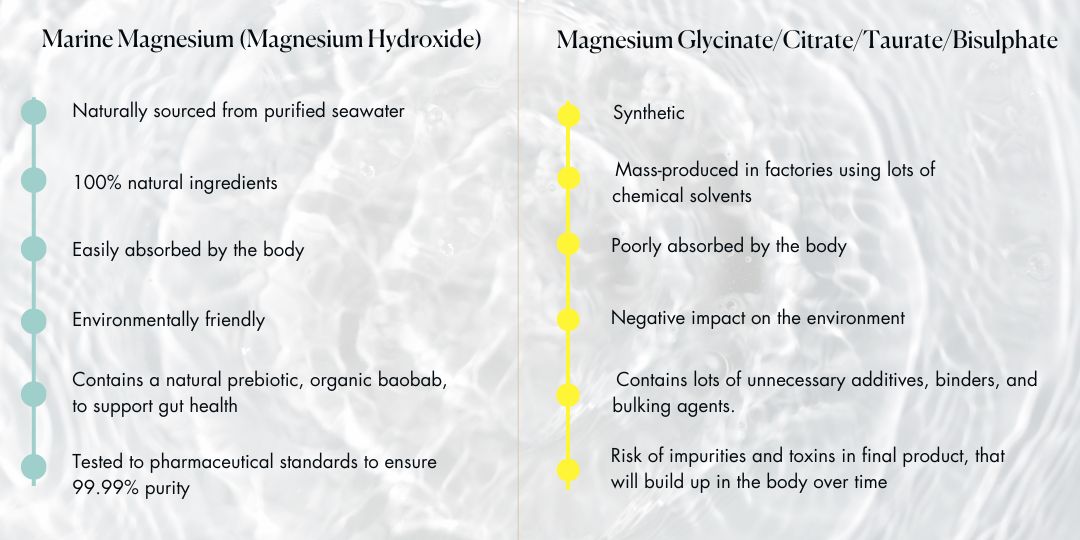
Best magnesium supplement
Marine Magnesium has been voted as one of the best magnesium supplements by experts in The Independent. Maz Packham, a nutritionist says:
This supplement (Marine Magnesium) is made from pure seawater plus it has added prebiotic to support the gut. The only other ingredient is its tapioca shell.
Best magnesium supplements, approved by experts | The Independent
Shop Marine Magnesium now
Call our Pharmacists if you have concerns
If you have any concerns about brain fog or any other health conditions, please call our pharmacists for free advice. (+44) 01483 685 630
Dimple Varu

Dimple is a pharmacist with 12 years of experience working in retail and general practice and now specialises in providing education and advice on natural supplements.
She believes in the power of nature and using natural existing compounds to enhance our health, whether that’s treating pain or helping to prevent long-term conditions. Mum of 1, living a busy life, loves reading and baking if she has the time.
How to enjoy great sleep, naturally
I only appreciated the full value of sleep after my son was born and we experienced regular interrupted nights. After a few weeks my mind started playing tricks and my wife would often find items in our food cupboards which were obviously not supposed to be there!
It took us several months to resolve my son’s regular wake up calls - we mixed bananas with his formula which sustained nutrition beyond 2 hours. By that time, I felt I was functioning at 30% of my usual capacity. However, I then found it difficult to restore my sleep pattern back to the pre-parenthood 7-8 hours. My body and its sleep hormones had adapted to the new regime.
Sleep research demonstrates how long term sleep problems impact health. The health impact data for sleep problems is a wake up call in itself! Long term effects include a decline in cognitive function, increase in mental health problems, chronic fatigue, and lack of concentration / irritability.
Every person is unique. However, the National Sleep Foundation guidelines advise that healthy adults should sleep, on average, between seven and nine hours a night.
How to reset the sleep pattern with natural solutions.
Sleep disturbances can be caused mainly by lifestyle, environmental and health factors.
Understanding and treating the primary cause, should usually resolve the issue and improve the quality of sleep.
Diet
I concluded from this experience, that I should never underestimate the power of food or drink to affect my health including sleep. To reset my system, I cut out all products containing caffeine and sugar for 2 weeks and then reintroduced them carefully avoiding caffeine in the afternoon or evenings. I love a glass of red wine in the evenings but I noticed even one glass affected the quality of my sleep making me wake up during the night so I reduced my week day alcohol intake too.
Smoking
I’m not a smoker but the data shows that nicotine is a brain stimulant so, while it is advisable to quit smoking altogether, it is important to avoid smoking just before bedtime.
Lifestyle
Daily exercise is fundamental for physical and psychological health; however, exercising just before bedtime will increase the body’s adrenaline production and raise body temperature, making it more difficult to switch off. So, exercise earlier in the day and try to avoid more intense exercise 2 hours before bedtime if possible.
The influence of daylight on the body’s sleep hormone melatonin is well documented. Exercising in daylight helps to restore melatonin levels in the evening. However, a glance at a mobile phone or laptop screen at night will quickly reduce the levels of this sleep hormone. Even opening a fridge door at night can have a negative effect.
Physical Health
Problems such as headaches, migraines or chronic pain will stop you from getting a good night sleep. Speak to your GP or Pharmacist about the appropriate medication or natural remedy to treat the relevant symptoms in order to resolve the issue.
Stress and mental health problems like anxiety and depression contribute to a high percentage of sleep difficulties. In this case, a combined approach of psychological support, lifestyle changes and use of medication/natural remedies, tailored to the severity of symptoms, is often very helpful and can restore emotional balance and promote restful sleep. Also, relaxation techniques such as meditation, yoga, mindfulness can help you to relax and unwind.
Furthermore, sleep difficulties can be related to hormone imbalances; fluctuations in the levels of testosterone, thyroxin, cortisol, progesterone and melatonin (sleep hormone) can all disturb your sleep pattern.
The production of melatonin naturally increases especially with evening darkness and it is a central part of the body’s sleep-wake cycle. The levels of melatonin are very important to induce and maintain sleep. Synthetic melatonin can be taken for the relief from short term sleep disturbances and can help adjust the body's internal clock. Consult your GP before starting melatonin therapy which is available on NHS prescription.
Environment
The bedroom should be somewhere that we associate with sleep. It is better to remove distractions from your bedroom and watch TV, play computer games and eat in another room. This will allow you to relax and unwind.
Also the ‘blue light’ generated by computers, phones and tablets displays suppresses the production of melatonin, hence causing sleep disruption. It is recommended not using these devices at least two hours before you go to sleep in order to reduce the impact on the quality of your night rest.
Other common factors that can affect sleep are light, temperature and noise. You should be able to control the intensity of light and noise in the room by using blackout curtains/ eye mask and ear plugs respectively. The temperature of the room is also very important; feeling too cold or hot can disrupt your sleep so always make sure you work out the best sleep environment for you. Keeping a sleep diary can be useful to record the conditions that helped you get a good night sleep.
How can Nature help?
At the Naked Pharmacy we believe in a holistic approach to health.
While addressing the root cause of sleep difficulties should be the first point of action, the use of natural remedies can support the process leading to a better quality and quantity of sleep.
How will Saffrosun help me?
At The Naked Pharmacy, we ensure that all of our supplements are made with effective strength bioactives and are scientifically supported by clinical trials. You can read more about our research here.
Marine Magnesium
Pure Marine Magnesium is a natural remedy which helps to support optimum nerve and muscle function, while promoting relaxation. It is sourced from sea algae and is one of the seven essential minerals we need for our bodies to function healthily. Magnesium helps relax muscles and induce sleep.
You can read more about clinical trials on the effect of magnesium supplementation on primary insomnia here.
It is recommended to consult your Pharmacist or GP before taking any new supplement to make sure it is suitable for you, do call us on 01483 685 630.
Final thoughts
After the birth of my son I realised why sleep is a vital component of overall health and well-being to help my body repair and re-set, ready for a new day. Taking a step by step approach to treat my sleep disturbance eventually resolved the issue. Eventually, I realised that my pre-bed routines and environment had a significant influence on the quality of my sleep. Small, incremental changes made a big difference.
Natural remedies proved effective for me and still form part of my approach, whenever I am troubled with poor sleep. At The Naked Pharmacy, we are always very happy when we help solve customer sleep problems because we know how much this will improve overall health and happiness.
Heart attack by Jeff Schmidt
It turns out that we really are ‘the sum total of our experiences.’ Had I known then the impact of many of my decisions, I may have made changes earlier, but it turns out that we must live life to truly understand it.
I was definitely living life. Perceived invincibility provided me with the tunnel vision which enabled me to dash from one task to another, ticking off one more achievement, adventure and accolade.
Of course you can’t sustain this symphonic level of intensity without topping up the tank with quick access fuel, mine came in the form of sugar- packets of delicious sweets and finely baked biscuits.
I also gradually began to neglect my regular exercise regimen in exchange for a membership in the weekend warrior club. Gut irritation and a little extra weight accumulated, but, as far as I was concerned, I felt normal for a 40-something professional.
‘That’ evening, the one that irreversibly shook up my life, Thursday 3 December, I found myself staring eternity squarely in the face. I had returned home from work with my two girls. It had been a stressful day capped by a suitably heated, hard-hitting quarrel that left me trembling.
I did not generally consider my life stressful, and yet I knew that I ran at a pretty high-octane pace. But that was OK, because, despite warnings from others, I was, or believed I was, bulletproof.
I wore my intensity like a shiny badge of honour. On that evening, however, the engine said ‘no more’; you can’t drive even the most brilliantly engineered sports cars at 5000 RPM indefinitely.
It took my mum, who spotted me bent over, clutching my chest, rubbing my arms on FaceTime and my daughter's subsequent fear-filled plea to get help for me to make the medical call. Reluctantly, in a haze of pain, I did make the call. In minutes an ambulance was there.

Pride masking the danger, I couldn’t help, but feel that all this commotion was quite unnecessary. The seasoned paramedics quickly assessed my traumatised frame, blood pressure surging through my veins like a blocked firehose. They looked me straight in the eyes, piercing my vanity, and said, “We are taking you to hospital. Now.”

‘That’ evening marked the beginning of a myriad of changes. Naturally, and most significantly was that of my health, but also, running neatly alongside, compelling me, almost without choice, was my desire to capture the goodness in life around me.
Being in hospital forced me to slow down and rest, my senses sharpened and my eyes opened to the subtleties in the world around me, to things I had not previously noticed before.
I became acutely aware of nuances in conversation, of the sacrifices of those around me and of the delicacy of relationships. I was also painfully cognizant, in increasing measure, of the compounding effects of the bad choices I had made for my body- sugar addiction, stress, exercise withdrawal and sleep deprivation.
Buckminster Fuller once said, “You never change things by fighting the existing reality. To change something, build a new model that makes the existing model obsolete.” So, that is what I did (and am doing), engineering a new, more tantalising model for life.
My diet, for instance, has been transformed. The once glutinous intake has been replaced with cleaner foods, nutrition straight from the earth and, perhaps more importantly, I expunged sweets.
Implored by the immediacy of the situation, I also instilled radical changes to my work routine and introduced regular, gentler exercises in the great outdoors. The list goes on, but I feel that, if indeed we are ‘the sum total of our experiences,’ I have been gifted a lifeline with which to significantly alter the outcome of my time here on earth. And, I must say, my heart feels good, very good indeed.

NOTE FROM THE NAKED PHARMACY
Jeff Schmidt is the Author/illustrator of the bestselling book:
HEART ATTACK- Finding hope, joy and inspiration through adversity.
Forest bathing
Intuitively, we understand that we feel better in nature.
Research has shown that a specific way of spending time in nature, called forest bathing, has immense benefits to our physical and mental wellbeing.
What is forest bathing?
It is a slow walk in the forest or woodland, using nature mindfully, to engage our senses.
Nature provides many opportunities to help us be mindful and present.
What can we see? Notice the many shades of green and fractal patterns of leaves and branches.
What do we hear? Notice the orchestra created by the wind and leaves, the songs of birds or the crunching of frost beneath our feet.
What do we smell? Notice the various scents of pine, the earthiness of fungi or the memory-evoking smell of soil.
What do we feel? Notice the softness of moss with our hands, the tickling of the pine on our cheeks or the coolness of the wind on our skin.
And finally, what do we taste? We can sometimes taste the air or finish a forest bathing session with a taste of the woodland, such as with pine needle tea.
What are the origins of forest bathing?
Forest Bathing is known in Japan as shinrin yoku and was started in the 1980s when many Japanese people showed signs of being stressed and overworked due to what was called “technostress”.
As Japanese society became more reliant on technology, people were further removed from nature. Something needed to be done. With tree coverage of 67% and a culture that pays reverence to nature, Japan naturally looked to the forests. Forest bathing was born.
Research
In 2004, Japanese government-funded research began to look into forest bathing and the results were impressive.
Research has continued and these studies showed that forest bathing has the potential to:
- Improve weakened immunity, with an increase in natural killer (NK) cells, white blood cells that attack tumours and infection
- Significantly decreased levels of stress hormones, cortisol and adrenaline
- Reduce blood pressure
- Increase heart rate variability (HRV – an indicator of being in your parasympathetic nervous system state)
- Decrease blood sugar levels
- Increase anti-cancer proteins perforin, granzyme A and granulysin
- Increase hours of sleep
- Improve concentration and memory
- Improve levels of feeling of wellbeing
Benefits arise from two factors.
The first source of the benefits of forest bathing are phytoncides.
Walking in the forest exposes us to the forest’s natural aromatherapy. Phytoncides are the natural oils within plants and are part of a tree’s defence system, protecting it from pests and diseases. These same phytoncides are partly responsible for the benefits. The main components of phytoncides are terpenes, which include D-limonene (smells lemony), Alpha-pinene (has a fresh, piney scent), Beta-pinene (smells herby, like basil or dill) and Camphene (smells of turpentine, a resinous smell)
The second source of the benefits of forest bathing are mindfulness and meditation.
Mindfulness and meditation helps us switch from our sympathetic nervous system, or ‘fight and flight’, to our parasympathetic nervous system, or ‘rest and digest’. If you already practice mindfulness and meditation, you will know that the key to calming the mind down is to focus on your breath. However, it can sometimes be difficult just to focus on the breath. Nature provides many subjects for us comfortably and happily to focus on and helps us “be in the present”. Remember the sight, sound, smell, feel and taste sensory exercises I introduced earlier? They help us re-connect with nature. After all, humans have spent 99.9% of time in history in a natural (rather than urban) environment making nature a place where humans instinctively feel relaxed and comfortable.
So next time you are in the forest or woodland, see if you can slow down your walking pace and take time to notice what is around you.
Or to slow down fully, let a forest bathing guide help you do the thinking. Two to three hours of forest bathing every four weeks replenishes the benefits of forest bathing.
There are many places you can practice forest bathing.
Forestry England is one source that shares locations of woodlands near you. The National Trust has a wealth of locations to forest bathe. If you are near the Surrey Hills, Hinoki Forest Bathing provides guided forest bathing sessions, including sunrise and sunset sessions, that finish with a Japanese influenced woodland tea ceremony.
Let nature replenish and care for you and in turn be inspired to care for nature.
By Lisa Duncan, HINOKI Forest Bathing in the Surrey Hills



